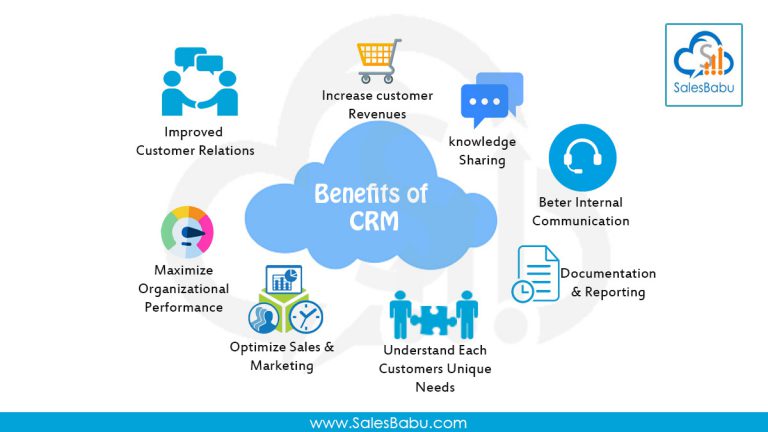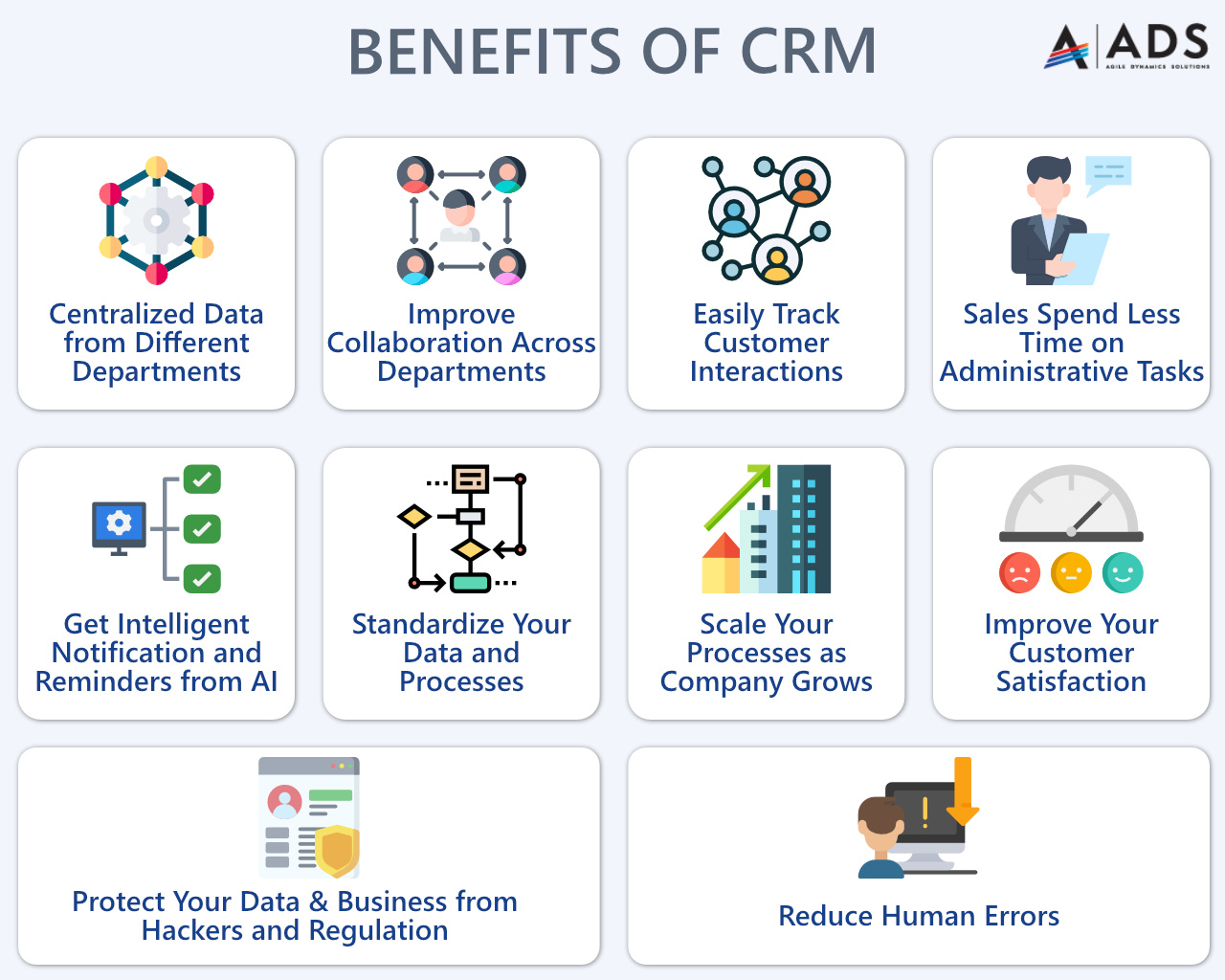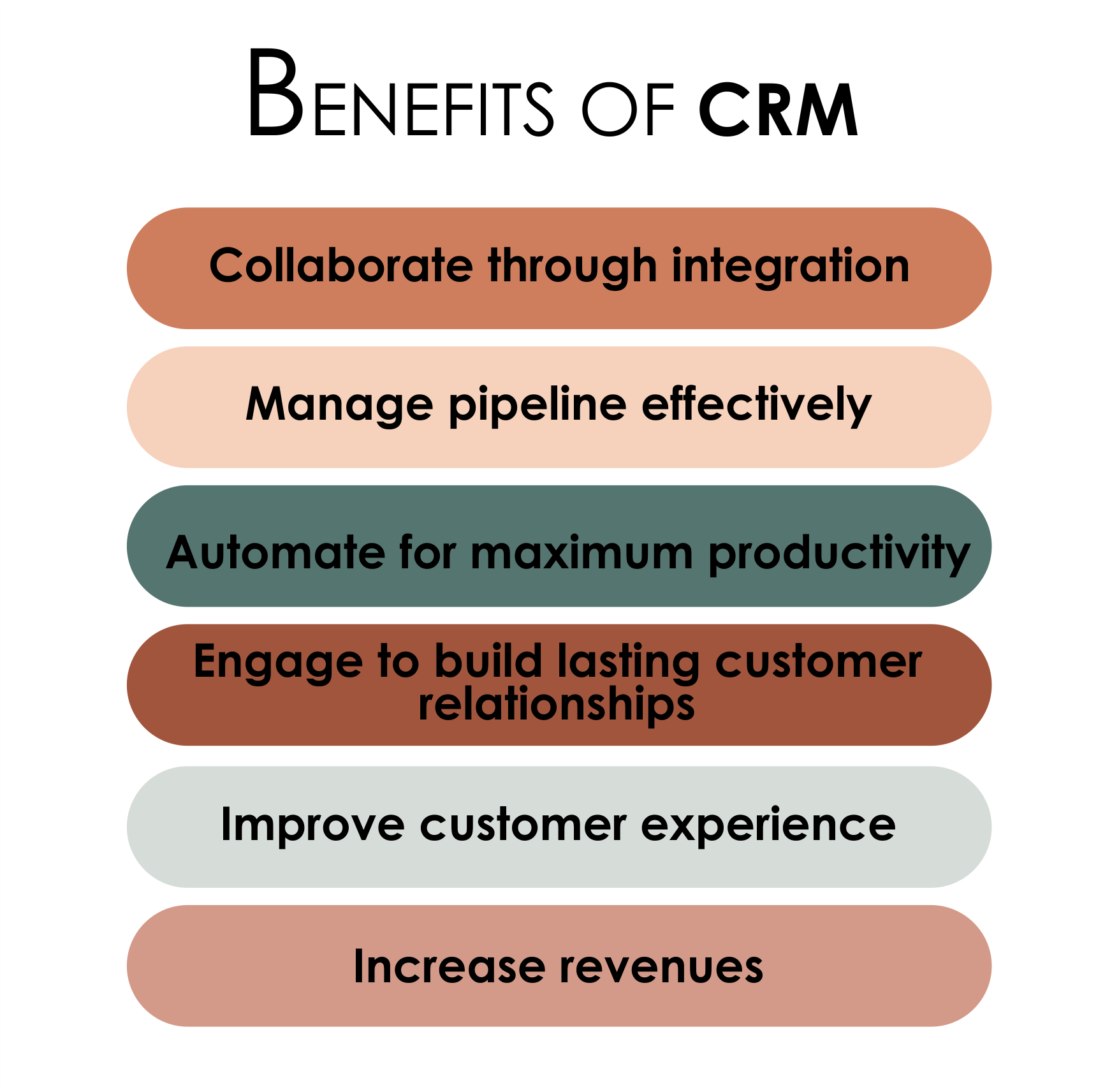Unlocking the Power of CRM Benefits
Exploring the realm of CRM benefits opens up a world of possibilities for businesses looking to revolutionize their customer relationships and streamline operations. From boosting sales productivity to enhancing customer service, CRM offers a myriad of advantages worth delving into.
Importance of CRM

Customer Relationship Management (CRM) plays a crucial role in today's business landscape, helping organizations effectively manage their relationships with customers and prospects.
Enhanced Customer Engagement
CRM systems enable businesses to streamline their interactions with customers, providing a centralized platform to store and access customer data. This leads to enhanced customer engagement and personalized experiences, ultimately improving customer satisfaction and loyalty.
Increased Sales and Revenue
By leveraging CRM tools, companies can track customer interactions, identify sales opportunities, and tailor their marketing efforts based on customer preferences. This targeted approach leads to increased sales and revenue generation.
Improved Customer Service
CRM systems help businesses deliver superior customer service by providing quick access to customer information, allowing for timely responses to inquiries and issues. This leads to higher customer retention rates and positive word-of-mouth referrals.
Industry Examples
- Retail: Retailers use CRM to analyze customer purchase history and preferences to create targeted marketing campaigns and loyalty programs.
- Finance: Financial institutions utilize CRM to track customer interactions and provide personalized financial advice and services.
- Hospitality: Hotels and resorts implement CRM systems to manage guest bookings, preferences, and feedback to enhance the overall guest experience.
Key Features of CRM

CRM systems offer a range of essential features that help businesses manage their customer relationships effectively. These features are designed to streamline sales processes, improve customer service, and enhance overall efficiency.
Customer Data Management
One of the key features of CRM is its ability to centralize and organize customer data. This includes contact information, purchase history, interactions with the company, and any other relevant details. By having all this information in one place, sales teams can easily access and update customer records, leading to more personalized interactions and targeted marketing campaigns.
Sales Automation
CRM systems automate various sales tasks, such as lead scoring, email campaigns, and follow-up reminders. This automation helps sales teams prioritize their activities, identify the most promising leads, and track progress throughout the sales pipeline. As a result, sales processes become more efficient and productive.
Customer Service Tools
CRM systems also provide tools for managing customer service interactions, such as ticketing systems, knowledge bases, and customer portals. These tools enable customer service teams to respond to inquiries quickly, access relevant information, and provide personalized support. By improving the customer service experience, businesses can build stronger relationships with their customers and increase loyalty.
CRM Benefits for Sales Teams
In today's competitive business environment, CRM tools play a crucial role in enhancing sales team productivity. By leveraging CRM software, sales teams can streamline their processes, improve communication with customers, and ultimately boost sales performance.
Enhanced Sales Team Productivity
- CRM tools provide sales teams with a centralized platform to store customer data, interactions, and purchase history, allowing for quick access to relevant information during sales calls or meetings.
- Automation features in CRM systems help sales representatives automate repetitive tasks such as data entry, follow-up emails, and appointment scheduling, freeing up more time for actual selling activities.
- Integration with other tools like email marketing platforms, social media channels, and analytics software enables sales teams to have a holistic view of customer engagement and tailor their sales strategies accordingly.
Impact on Sales Forecasting and Pipeline Management
- CRM tools provide insights into customer behavior, buying patterns, and sales trends, allowing sales teams to make accurate sales forecasts and strategically plan their sales activities.
- By tracking leads and opportunities through the sales pipeline, CRM systems help sales managers monitor progress, identify bottlenecks, and allocate resources effectively to maximize sales conversions.
- Real-time reporting and analytics in CRM software enable sales teams to make data-driven decisions, prioritize high-value leads, and focus on opportunities with the highest likelihood of closing.
Improved Lead Nurturing and Conversions
- CRM tools enable sales teams to segment leads based on demographics, behavior, and engagement level, allowing for personalized and targeted communication that resonates with potential customers.
- Automated lead nurturing workflows in CRM systems help sales representatives send timely follow-up messages, relevant content, and personalized offers to move leads through the sales funnel and increase conversion rates.
- By tracking interactions with leads and analyzing their responses, sales teams can identify the most effective sales tactics, refine their approach, and continuously improve their lead conversion rates over time.
Customer Service Benefits of CRM

CRM plays a crucial role in enhancing customer support and issue resolution by providing a centralized platform for managing customer interactions and information. This enables companies to deliver more efficient and personalized customer service.
Creating Personalized Customer Experiences
CRM allows businesses to track customer preferences, purchase history, and interactions across various channels. This data enables companies to tailor their communication and offerings to meet the specific needs and preferences of individual customers.
- By analyzing customer data stored in CRM systems, companies can anticipate customer needs and provide proactive support.
- CRM helps in segmenting customers based on their behavior and preferences, allowing for targeted marketing campaigns and personalized communication.
- Personalized interactions lead to higher customer satisfaction and loyalty, as customers feel valued and understood by the company.
Improving Customer Retention Rates
CRM systems enable businesses to track customer interactions, feedback, and purchase history, which helps in identifying at-risk customers and implementing strategies to retain them.
- By addressing customer issues promptly and effectively through CRM, companies can enhance customer satisfaction and loyalty.
- CRM facilitates regular follow-ups and communication with customers, strengthening relationships and increasing retention rates.
- Through personalized interactions and targeted marketing efforts, CRM helps in building long-term relationships with customers, reducing churn rates.
CRM for Marketing Effectiveness
CRM plays a crucial role in enhancing marketing effectiveness by providing valuable insights and tools to streamline marketing campaigns and target the right audience effectively.
Targeted Marketing Campaigns
- CRM software allows businesses to segment their customer database based on various criteria such as demographics, purchase history, and behavior.
- By analyzing this data, marketers can create targeted marketing campaigns that resonate with specific customer segments, increasing the chances of engagement and conversion.
- Personalized messaging and offers can be tailored to different customer groups, resulting in higher response rates and improved ROI.
Customer Segmentation and Analysis
- CRM enables marketers to categorize customers into different segments based on their preferences, behaviors, and needs.
- By understanding these segments, businesses can create more relevant and personalized marketing strategies that cater to the specific needs of each group.
- Customer segmentation helps in identifying high-value customers, retaining them, and targeting similar prospects for acquisition.
Tracking Marketing ROI
- CRM systems provide real-time data on marketing campaigns, allowing marketers to track the performance of their initiatives.
- By measuring key metrics such as conversion rates, customer acquisition costs, and customer lifetime value, businesses can assess the effectiveness of their marketing efforts.
- Tracking marketing ROI helps in optimizing campaigns, reallocating resources to high-performing channels, and improving overall marketing efficiency.
Last Word
In conclusion, the journey through CRM benefits unveils a tapestry of advantages that can elevate businesses to new heights of success. By harnessing the power of CRM, companies can forge stronger customer connections and drive growth in ways previously unimagined.
FAQ Overview
How does CRM benefit sales teams?
CRM tools enhance sales team productivity by providing insights into customer interactions, streamlining processes, and improving lead management.
What role does CRM play in customer service?
CRM enhances customer support by centralizing customer information, enabling personalized interactions, and facilitating quicker issue resolution.
Can CRM improve marketing effectiveness?
CRM assists in targeted marketing campaigns by segmenting customers, analyzing their behaviors, and tracking the ROI of marketing efforts.